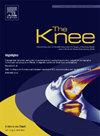ChatGPT与专家关节置换外科医生在全膝关节置换术患者咨询中的比较
IF 2
4区 医学
Q3 ORTHOPEDICS
引用次数: 0
摘要
本研究旨在评估人工智能在全膝关节置换术(TKA)患者咨询方面与关节置换术专家直接比较的有效性。方法基于对现有患者资源和专家共识的回顾,选择一组10个常见的一般性和非特异性单步患者问题。然后从ChatGPT-4.0以及我们机构的五位关节成形术专家中收集回复。A、B、C、D、E表示出席响应,F表示ChatGPT响应。收集到的反馈然后由相同的五位关节置换外科医生使用五点李克特量表在四个表现领域进行盲法和独立评估,包括移情、准确性、完整性和整体质量。确定每个问题的平均分数。结果集F, ChatGPT答案在所有类别中得分明显高于集A, B和D。然而,集合F与集合C和集合E在所有类别中没有显著差异。D组的平均得分高于4分,在所有四个类别中都高于中性。当主治医生的得分与ChatGPT相结合并进行比较时,后者在移情(4.4对3.5)、准确性(4.4对3.7)、完整性(4.4对3.5)和整体质量(4.4对3.6)方面的评分更高(P <;0.001)。结论ChatGPT-4.0的初步评估显示,大语言人工智能模型有潜力作为考虑TKA的患者的补充资源。本文章由计算机程序翻译,如有差异,请以英文原文为准。
ChatGPT versus expert arthroplasty surgeons in total knee arthroplasty patient counseling
Background
This study aimed to assess the effectiveness of AI compared directly with expert arthroplasty surgeons regarding patient counseling for total knee arthroplasty (TKA).
Methods
A set of 10 commonly asked generic and nonspecific, single-step patient questions were selected based on review of existing patient resources and expert consensus. Responses were then collected from ChatGPT-4.0 as well as five expert arthroplasty attendings at our institution. A, B, C, D, and E represent attending responses, while F represents the ChatGPT responses. The collected responses were then blinded and independently assessed by the same five arthroplasty surgeons using a five-point Likert scale in four performance areas including empathy, accuracy, completeness, and overall quality. Average scores for each question were determined.
Results
Set F, the ChatGPT answers scored significantly higher than sets A, B, and D in all categories. However, set F did not differ significantly from set C, and E in all the categories. The mean score for set D was above a mean of 4, above neutral, for all four categories. This was only the case for sets C and E. When the attendings scores were combined and compared with ChatGPT, the latter had higher ratings for empathy (4.4 vs. 3.5), accuracy (4.4 vs. 3.7), completeness (4.4 vs. 3.5), and overall quality (4.4 vs. 3.6) (P < 0.001).
Conclusion
A preliminary evaluation of ChatGPT-4.0 shows potential for large language AI models to serve as a supplementary resource of patients considering TKA.
求助全文
通过发布文献求助,成功后即可免费获取论文全文。
去求助
来源期刊

Knee
医学-外科
CiteScore
3.80
自引率
5.30%
发文量
171
审稿时长
6 months
期刊介绍:
The Knee is an international journal publishing studies on the clinical treatment and fundamental biomechanical characteristics of this joint. The aim of the journal is to provide a vehicle relevant to surgeons, biomedical engineers, imaging specialists, materials scientists, rehabilitation personnel and all those with an interest in the knee.
The topics covered include, but are not limited to:
• Anatomy, physiology, morphology and biochemistry;
• Biomechanical studies;
• Advances in the development of prosthetic, orthotic and augmentation devices;
• Imaging and diagnostic techniques;
• Pathology;
• Trauma;
• Surgery;
• Rehabilitation.
 求助内容:
求助内容: 应助结果提醒方式:
应助结果提醒方式:


